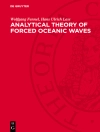Over 100 authors present 25 contributions on the impacts of global change on terrestrial ecosystems including:
- key processes of the earth system such as the CO2 fertilization effect, shifts in disturbances and biome distribution, the saturation of the terrestrial carbon sink, and changes in functional biodiversity,
- ecosystem services such the production of wheat, pest control, and carbon storage in croplands, and
- sensitive regions in the world threaten by rapid changes in climate and land use such as high latitudes ecosystems, tropical forest in Southeast Asia, and ecosystems dominated by Monsoon climate.
The book also explores new research developments on spatial thresholds and nonlinearities, the key role of urban development in global biogeochemical processes, and the integration of natural and social sciences to address complex problems of the human-environment system.
Tabella dei contenuti
Global change and the Earth System.- Global Ecology, Networks, and Research Synthesis.- Carbon and Water Cycles in the 21st Century.- CO2 Fertilization: When, Where, How Much?.- Ecosystem Responses to Warming and Interacting Global Change Factors.- Insights from Stable Isotopes on the Role of Terrestrial Ecosystems in the Global Carbon Cycle.- Effects of Urban Land-Use Change on Biogeochemical Cycles.- Saturation of the Terrestrial Carbon Sink.- Changing Biodiversity and Ecosystem Functioning.- Functional Diversity — at the Crossroads between Ecosystem Functioning and Environmental Filters.- Linking Plant Invasions to Global Environmental Change.- Plant Biodiversity and Responses to Elevated Carbon Dioxide.- Predicting the Ecosystem Consequences of Biodiversity Loss: the Biomerge Framework.- Landscapes under Changing Disturbance Regimes.- Plant Species Migration as a Key Uncertainty in Predicting Future Impacts of Climate Change on Ecosystems: Progress and Challenges.- Understanding Global Fire Dynamics by Classifying and Comparing Spatial Models of Vegetation and Fire.- Plant Functional Types: Are We Getting Any Closer to the Holy Grail?.- Spatial Nonlinearities: Cascading Effects in the Earth System.- Dynamic Global Vegetation Modeling: Quantifying Terrestrial Ecosystem Responses to Large-Scale Environmental Change.- Managing Ecosystem Services.- Wheat Production Systems and Global Climate Change.- Pests Under Global Change — Meeting Your Future Landlords?.- Greenhouse Gas Mitigation Potential in Agricultural Soils.- Carbon and Water Tradeoffs in Conversions to Forests and Shrublands.- Natural and Human Dimensions of Land Degradation in Drylands: Causes and Consequences.- Regions under Stress.- Southeast Asian Fire Regimes and Land Development Policy.- Global Change Impacts on Agroecosystems of Eastern China.- Terrestrial Ecosystems in Monsoon Asia: Scaling up from Shoot Module to Watershed.- Responses of High Latitude Ecosystems to Global Change: Potential Consequences for the Climate System.- Future Directions: the Global Land Project.- The Future Research Challenge: the Global Land Project.
Circa l’autore
Josep Candadell Science officer of the global change and terrestrial ecosystems (GCTE) core project of IGBP at Standford University, and executive officer of GCTE at CSIRO-Australia. Currently, executive director of the Global Carbon Project, a joint project of IGBP, IHDP, WCRP, and Diversitas Diane Pataki Former Scientific Officer for GCTE Focus 1, Ecosystem Physiology, at the University of Utah in Salt Lake City, USA. Currently an Assistant Professor at the University of California, Irvine, jointly in the Department of Earth System Science and the Department of Ecology and Evolutionary Biology Louis Pitelka Chief Science Advisory for the U.S. Department of Agriculture’s Competitive Grants Program. Former Chair of the Global Change and Terrestrial Ecosystems core project of IGBP. Involved in research on the effects of global change on terrestrial ecosystems since 1990. Former Editor-in-Chief of Ecological Applications












